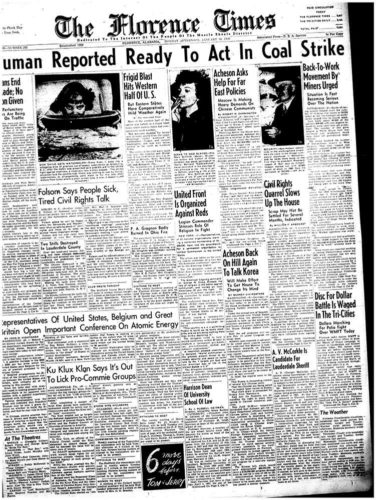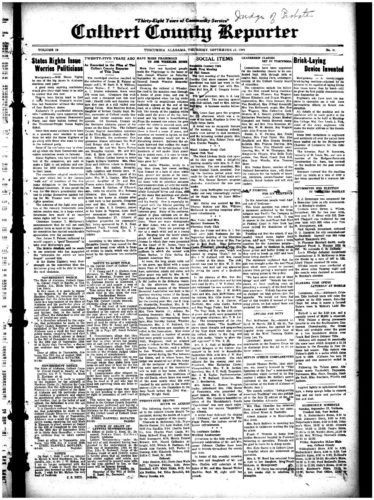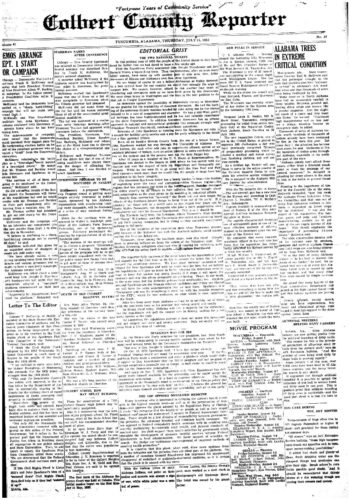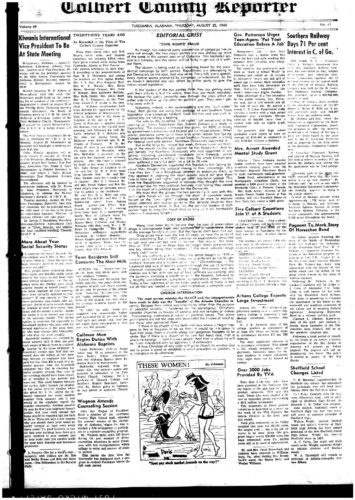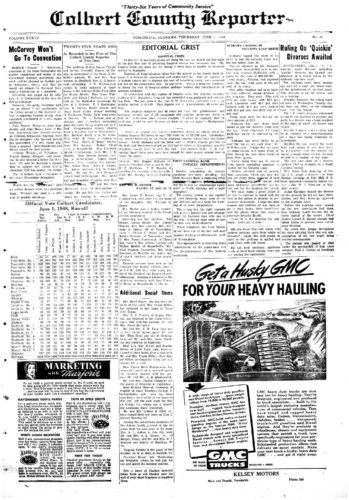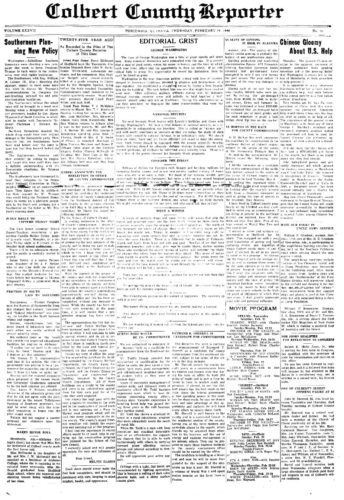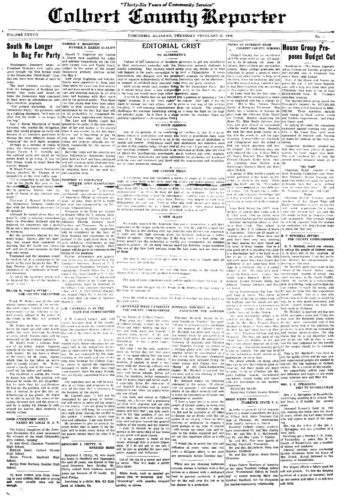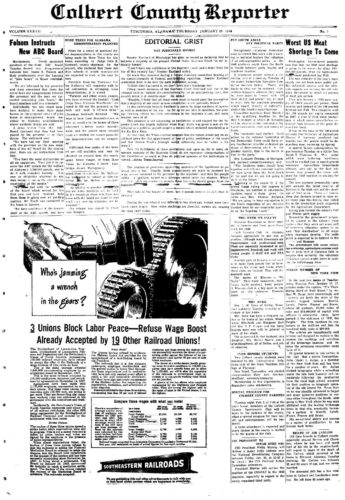January 20, 1950
Explains that Alabama Governor Folsom believed that the discussion of civil rights had grown monotonous and that there were more crucial things to be discussed; also, presents information about a Democratic meeting in Raleigh that avoided discussion of civil rights that Governor Folsom endorsed as being positive.
